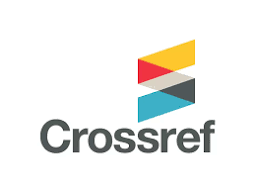Research Misconduct Policy
We are committed to maintain the integrity of Published articles in IJP. As suggested by ICMJE, corrections are needed for errors of fact. In case, any error or misconduct is reported after publication, Chief Editor of IJP will constitute a Publication & Research Integrity Committee comprising of two editorial board members and one Advisory board members. for complete and fair investigation of the matter and recommendation to update, correct, or retract the contents, if such actions are required.
Erratum
During proof stage, IJP sends the final PDF copy to the corresponding author to identify any errors to be corrected by the journal and approval of the final version by the author before final publication.
An erratum refers to a correction of errors introduced to the article by the journal in editing or production.
Errors identified after publication by authors or readers are corrected in PDF copy of the online version. Errata are generally not published for simple, obvious typing errors identified after publication, but are published when an apparently simple error will have significant impact (e.g. typing error in the corresponding author's email address). A significant error in the figure or table is corrected by publication of a new corrected figure or table as an erratum. The figure or table is republished only if the editor considers it necessary.
Retractions
Papers having serious errors to invalidate a paper's results and conclusions, or publication misconduct may require retraction. Retractions may be requested by an article’s author(s), by an institution, by readers, or by the editor.
As per COPE retraction guidelines, IJP will consider retracting a publication if:
- There is a clear evidence that the findings are unreliable, either as a result of major error (eg, miscalculation or experimental error), or as a result of fabrication (eg, of data) or falsification (eg, image manipulation)
- It constitutes plagiarism
- The findings have previously been published elsewhere without proper attribution to previous sources or disclosure to the editor, permission to republish, or justification (ie, cases of redundant publication)
- It contains material or data without authorization for use.
- Copyright has been infringed or there is some other serious legal issue
- It reports unethical research
- It has been published solely on the basis of a compromised or manipulated peer review process
- The author(s) failed to disclose a major competing interest (conflict of interest) that, in the view of the editor, would have unduly affected interpretations of the work or recommendations by editors and peer reviewers.
At times the article may occasionally be retracted for correction of errors in submission or publication and will be replaced with the corrected one.
Retraction Process
IJP adopts the following retraction process to ensure best practice of retraction:
- An article requiring potential retraction is brought to the attention of IJP editor.
- IJP editor should follow the step-by-step guidelines according to the COPE flowcharts and will seek the response from the author of the article as well.
- IJP Publication & Research Integrity Committee will evaluate the evidence of the misconduct and response of the authors. Based on the findings, committee will recommend a final decision whether to retract the publication or otherwise.
- The final decision is then communicated to the author and, if necessary, any other relevant bodies, such as the author's institution as deemed appropriate.
- The retraction-note titled “Retraction: [article title]” will be published in the paginated part of a subsequent issue of the journal and listed in the contents list.
- The text of the retraction should explain why the article is being retracted.
- The statement of retraction and the original article must be clearly linked in the electronic database so that the retraction will always be apparent to anyone who comes across the original article.

